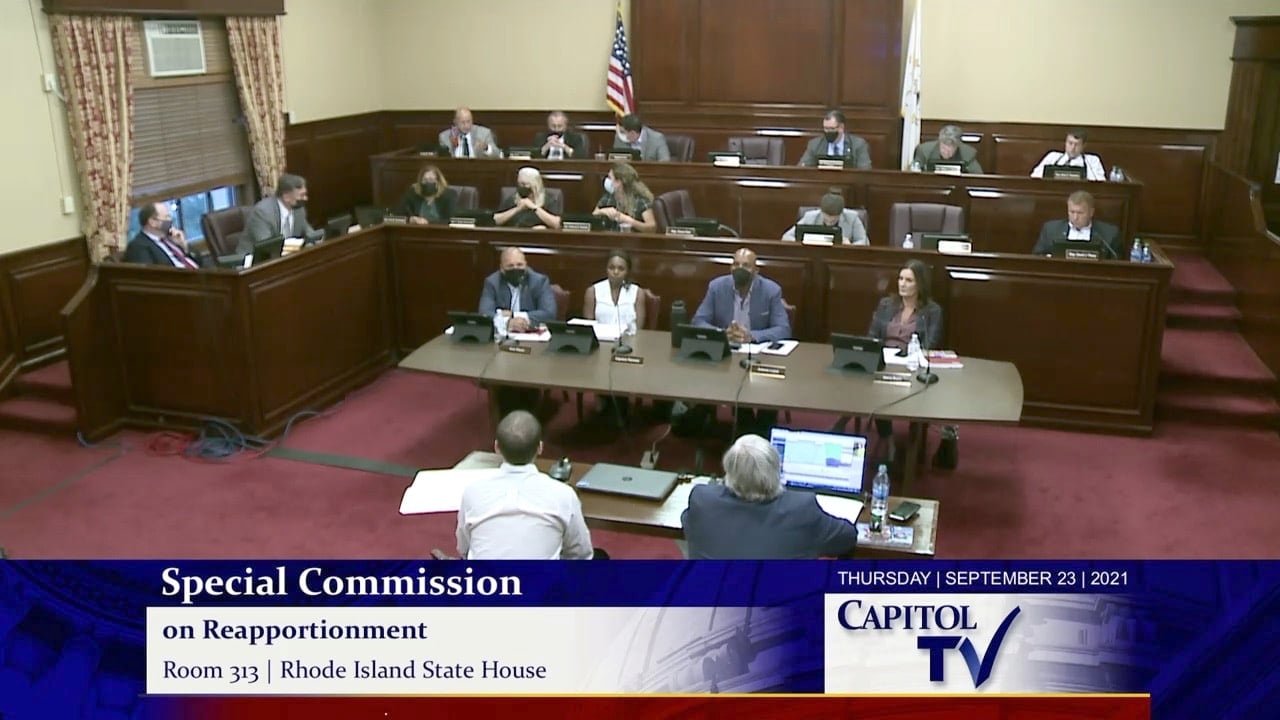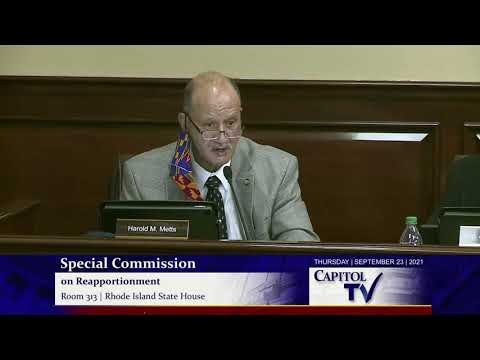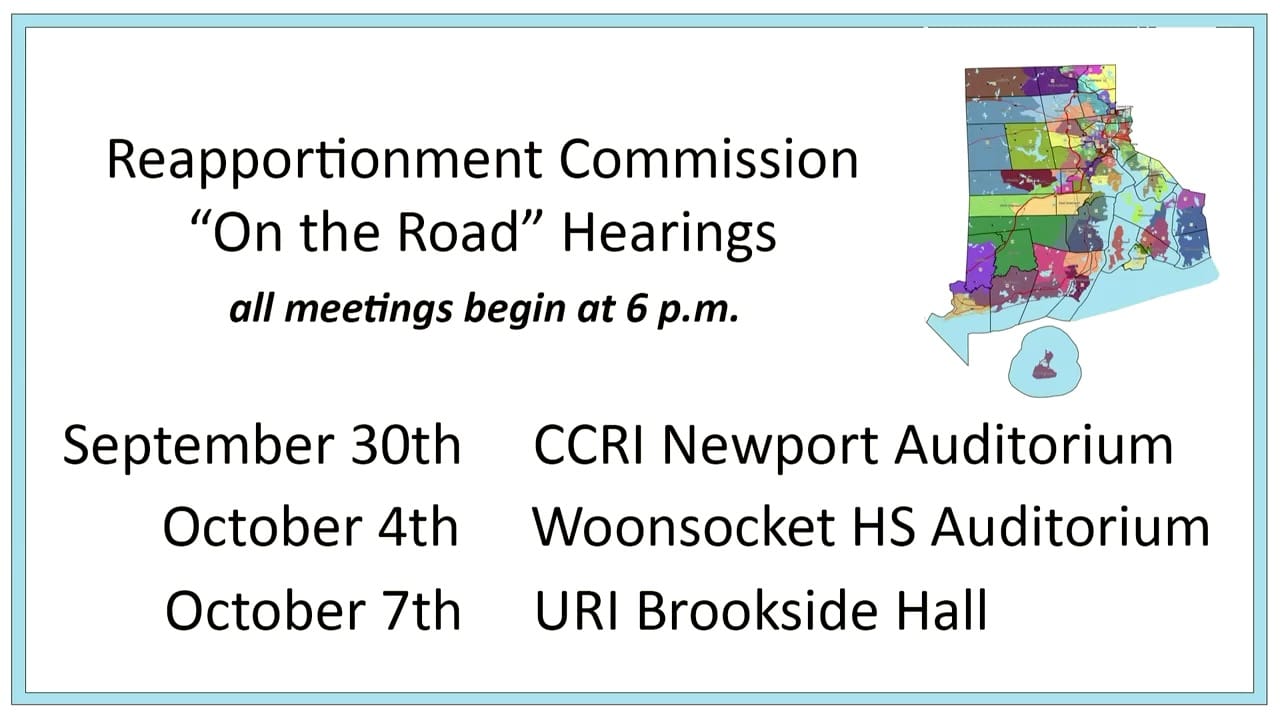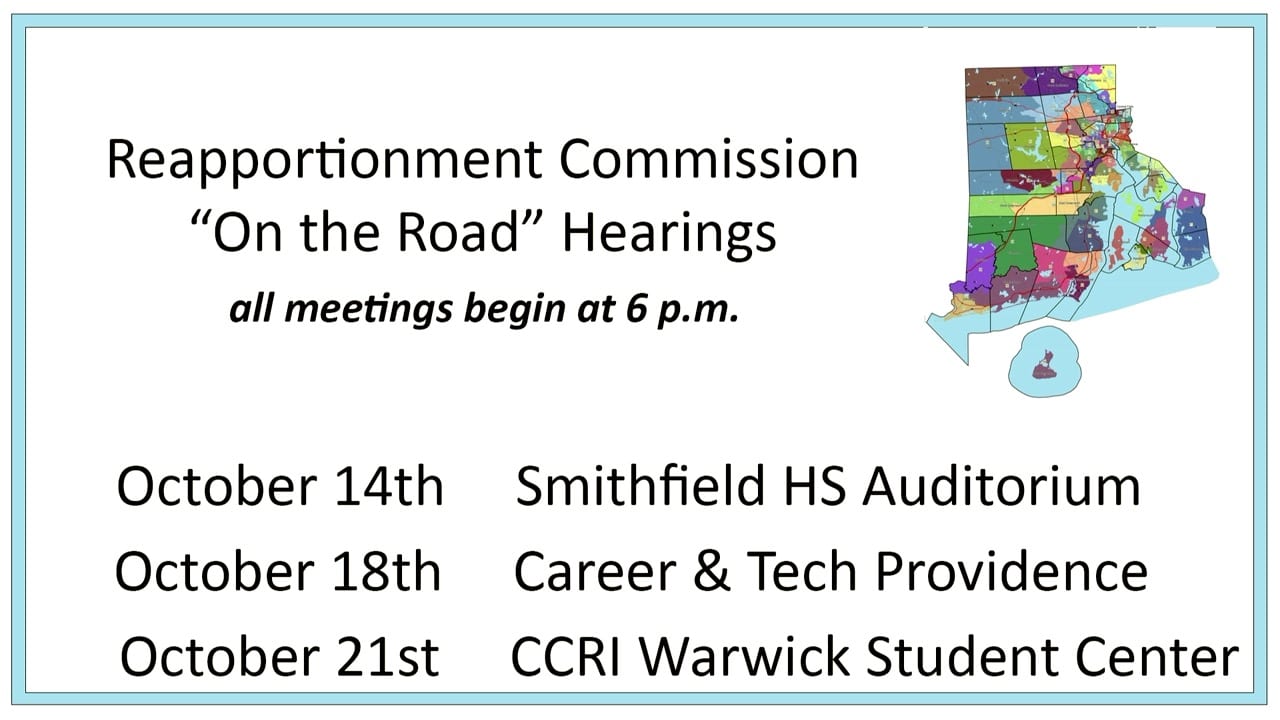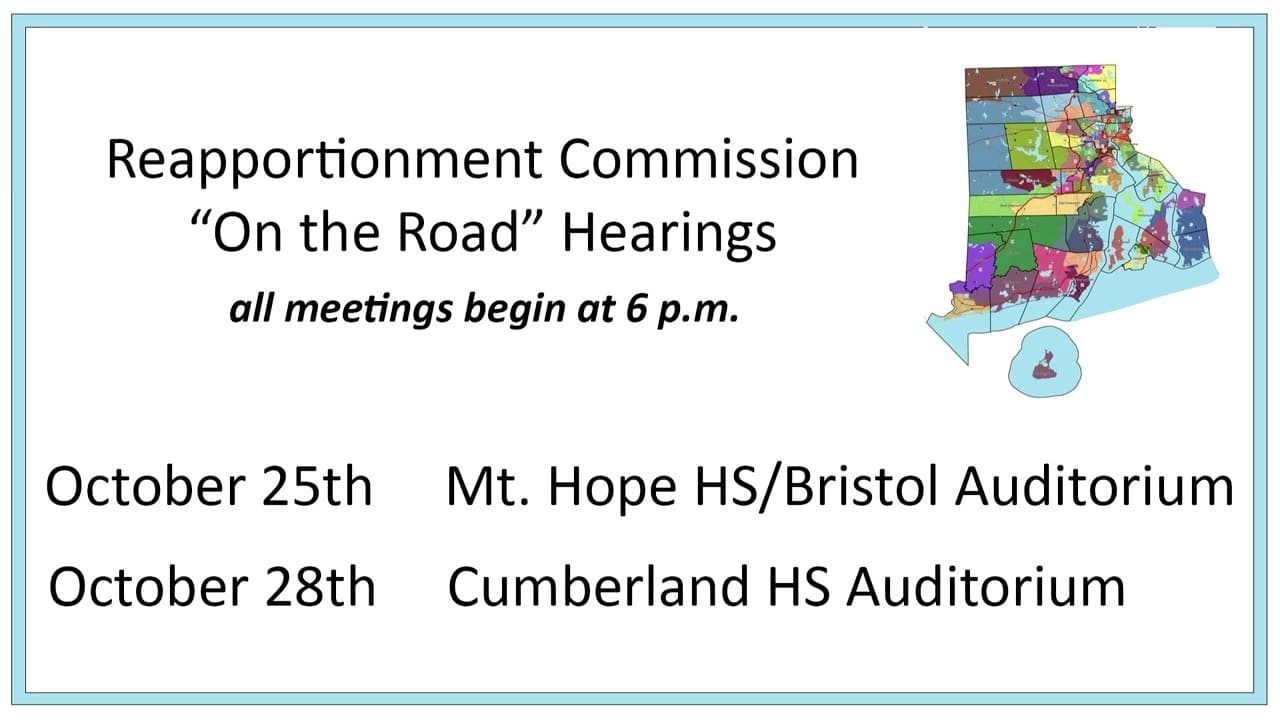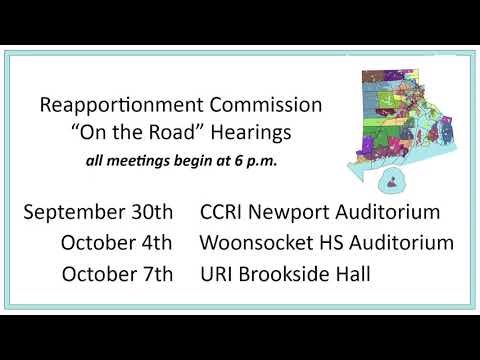Race, redistricting and prison gerrymandering: How will Rhode Island respond?
“If large states like Pennsylvania can [end prison gerrymandering] , Rhode Island can do it too,” said Providence College Political Science Professor Adam Myers.
September 24, 2021, 3:12 pm
By Steve Ahlquist
At the third General Assembly commission hearing on redistricting, a once every decade process of redrawing the district lines in Rhode Island, the subject of race – and the legacies of systemic racism – were alluded to and briefly discussed.
- Uprise RI livetweeted the first 90 minutes of the hearing here.
- Second Redistricting Commission meeting deals with racial data
- Rhode Island begins the process of redistricting
- Get ready to testify on redistricting at the State House next Thursday
- Redistricting will always end in gerrymanders by Samuel Howard
- The next battle in Rhode Island: Redistricting
- “Redraw Rhode Island” kicks-off campaign for an Independent Redistricting Commission
This decade’s redistricting commission has the ability to finally address the issue of prison gerrymandering. Prison gerrymandering is the process by which incarcerated people, who cannot vote, are counted for purposes of drawing districts. Each district should have roughly the same number of people, but by including prison populations in some districts, the number of voters a candidate must convince drops appreciably. This causes the political strength of communities surrounding prisons to be “unfairly inflated” noted Providence College Political ScienceProfessor Adam Myers, while the political strength of the communities from which these prisoners come are “unfairly diminished. Given the racial makeup of our prison population, it’s plain to see that Black and brown neighborhoods in Providence, Pawtucket and Central Falls are the most negatively impacted, making this form of gerrymandering textbook systemic racism.
Professor Myers testified before the commission about his analysis of the United States Census data that came out last month and is the basis upon which the districts in the state will be redrawn. Professor Myers noted that there is a precinct in Cranston that has 389 residents, but no registered voters. A neighboring precinct has a census population 1209 persons, but only 69 registered voters. Both of these districts, said Professor Myers, are part of House District 20 and Senate District 31, which are otherwise entirely in the city of Warwick. House District 15 and Senate District 27 also benefit from prison gerrymandering, empowering predominantly white neighborhoods while disempowering BIPOC communities throughout the state.
Professor Myers suggested that the Redistricting Commission work to undo prison gerrymandering and suggested reallocating incarcerated people from the place where they are serving their sentence to the districts of their home address.
In Rhode Island, bills to deal with prison gerrymandering in the General Assembly have not passed. This is largely due to the fact that former Speaker of the House Nicholas Mattiello, representing District 15, Cranston, was a beneficiary of this system, and had the power to quash the bills. But Mattiello is no longer the Speaker. Still, even if the General Assembly moved to pass something now, it would be too late for the present round of redistricting, and would only come into effect a decade from now, in 2031.
So is it too late? Professor Myers says no. “This can be done,” said the Professor. “Two states, New York and Maryland, did it during the last round of redistricting. Another nine states have passed legislation to do it for this round of redistricting and just last month, the Pennsylvania Legislative Reapportionment Commission [the Pennsylvania equivalent of Rhode Island’s commission] voted to do it for that state, without a statute being passed by the Pennsylvania General Assembly.
“If large states like Pennsylvania can do it, Rhode Island can do it too,” said Professor Myers.
Doing this requires taking two steps:
- Setting to zero the number of incarcerated people in these precincts to zero; and
- Contacting the Rhode Island Department of Corrections and the Wyatt Detention Center and determining the home addresses of the inmates there so that they can be reallocated.
Rhode Island’s redistricting consultant, Kimball Brace, was not enthused by the idea. Brace had indicated at the first 2021 Rhode Island Redistricting Commission hearing that it would take a decade and legislation having already been passed to accomplish this task.
“In order to properly do this,” said Brace, you really need to work with the Department of Corrections ahead of time.”
Professor Myers countered that not only has Pennsylvania accomplished this, they did so with a much shorter window in which to work, as their primary season is earlier than Rhode Island’s.
In short, it seems that ff the Redistricting Commission fails to act, they are assuring that Rhode Island wallows in ten more years of entirely preventable systemic racism.
The topic of race was previously brought up during the meeting in the middle of Attorney H Reed Witherby‘s frankly tedious explanation of the legal framework and court decisions that bracket the possibilities of redistricting. [See: Redistricting will always end in gerrymanders for Samuel Howard‘s far more engaging take.] One of the duties of th Commission is to ensure minority representation in the General Assembly, by working to keep minority voting blocks together that they might elect people to properly represent them.
However, as Kimball Brace pointed out, “There are minority members in both chambers that are in not minority-majority seats. So there is, in Rhode Island, an instance where we can that the white population would support minority candidates… so you may not need to get fairly packed” districts as regards minority populations.
Those interested in fair representation for minority populations should keep a very careful eye here.
Here’s Attorney H Reed Witherby’s full presentation:
Switching gears from minority representation in the General Assembly to ensuring a fair and open process as to how we do redistricting, Kimball Brace noted that, “We’re going to try to open up, starting next Monday, for legislators to come see us.”
The idea is for Brace’s company, Election Data Services, to meet individually with every member of the General Assembly to learn more about the districts and neighborhoods they represent. These will be private, one-on-one meetings, unavailable to the public.
In this video Kimball Brace explains the online tools the public can use to draw district maps.
Brace provides some introductory comments at the beginning of the commission hearing.
Nicholas Lima, on behalf of the Cranston Redistricting Commission, submitted a letter asking that the 3,000 person precinct cap be raised to a higher number. I’m not sure I fully understand this issue, and hope to get back to it at a later time.
The final video is the announcement of the meetings that will take place throughout Rhode Island, the first to be held next Thursday, September 30th, at CCRI’s Newport Auditorium. Later meetings are still in process of having their locations finalized, but her are all the tentative dates and locations:



